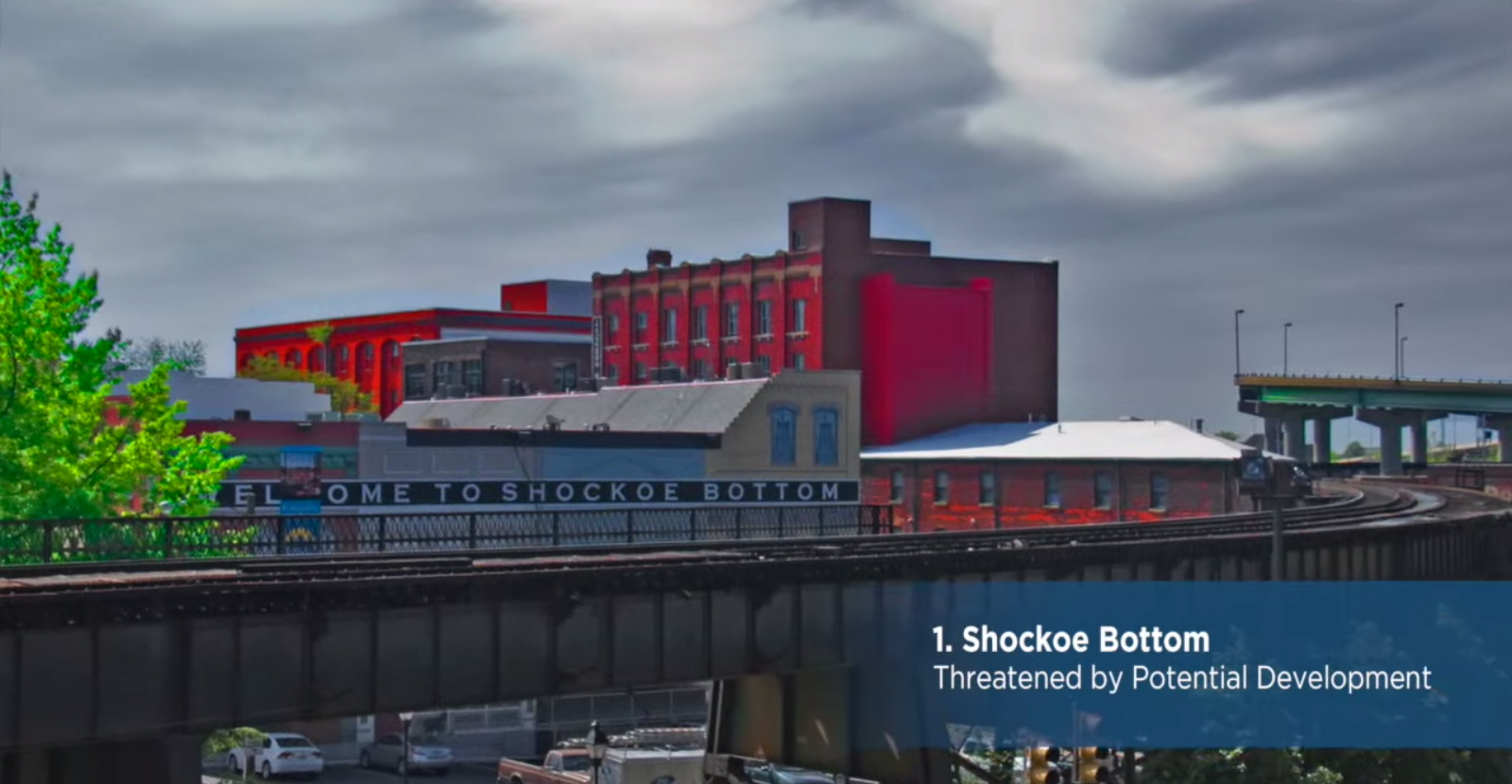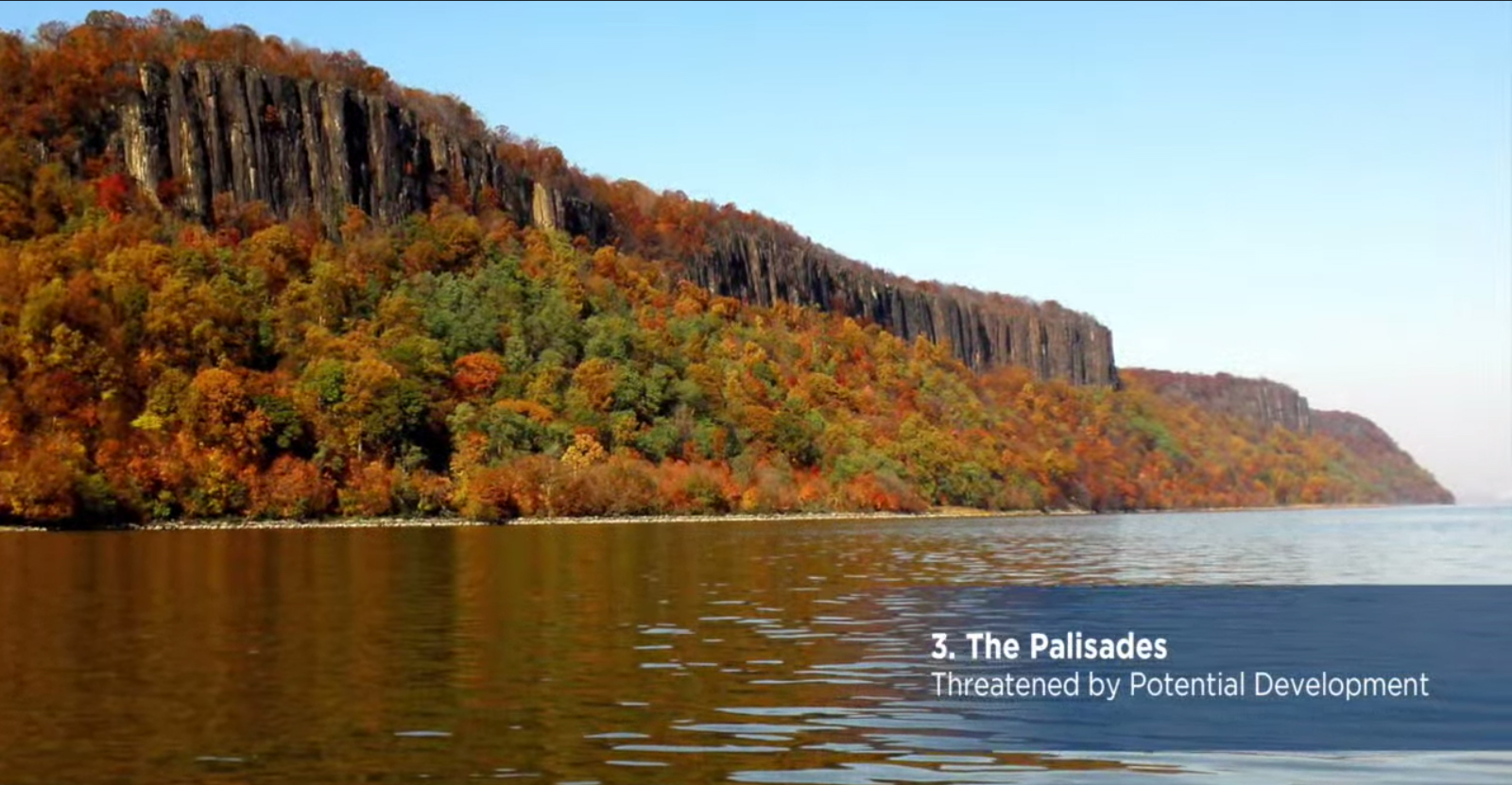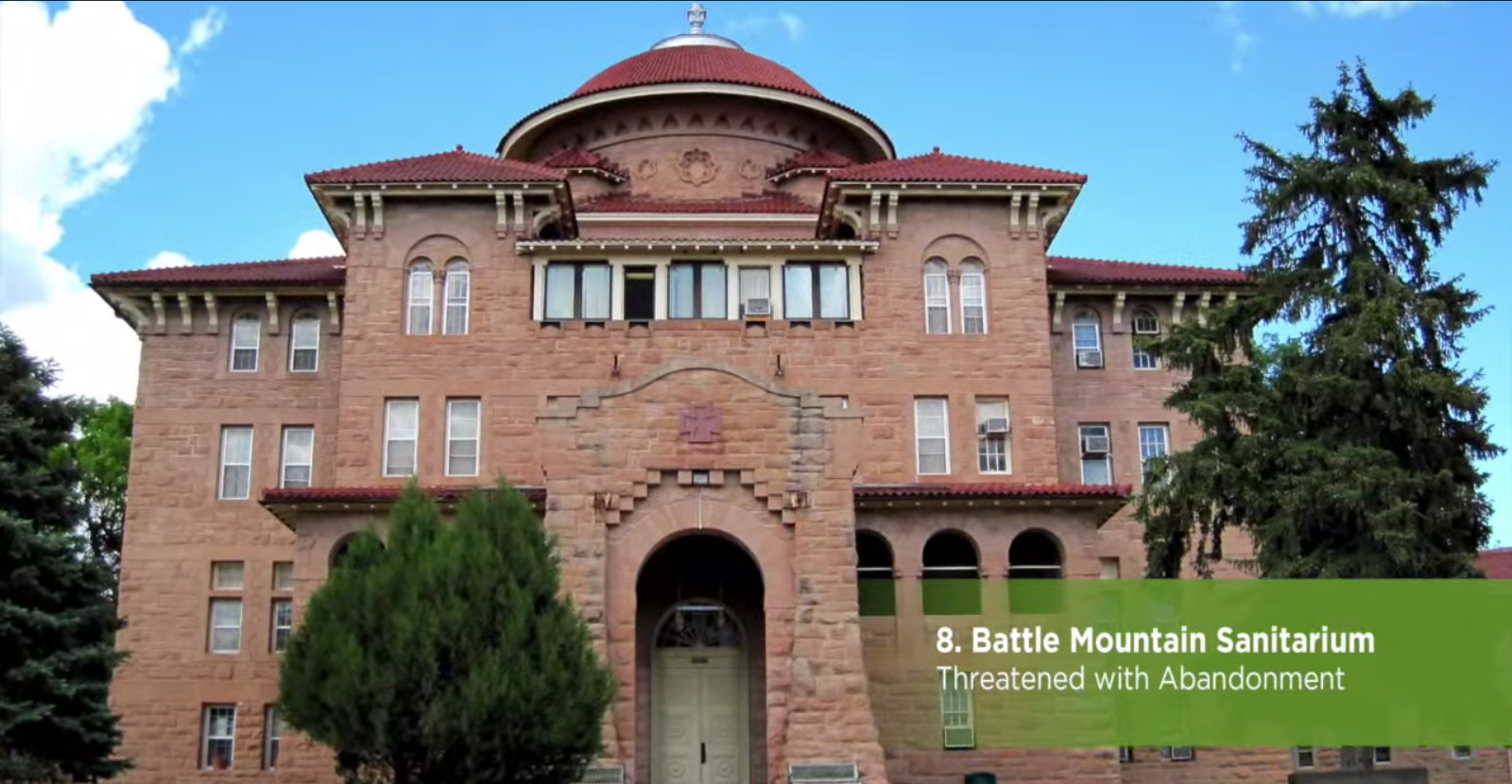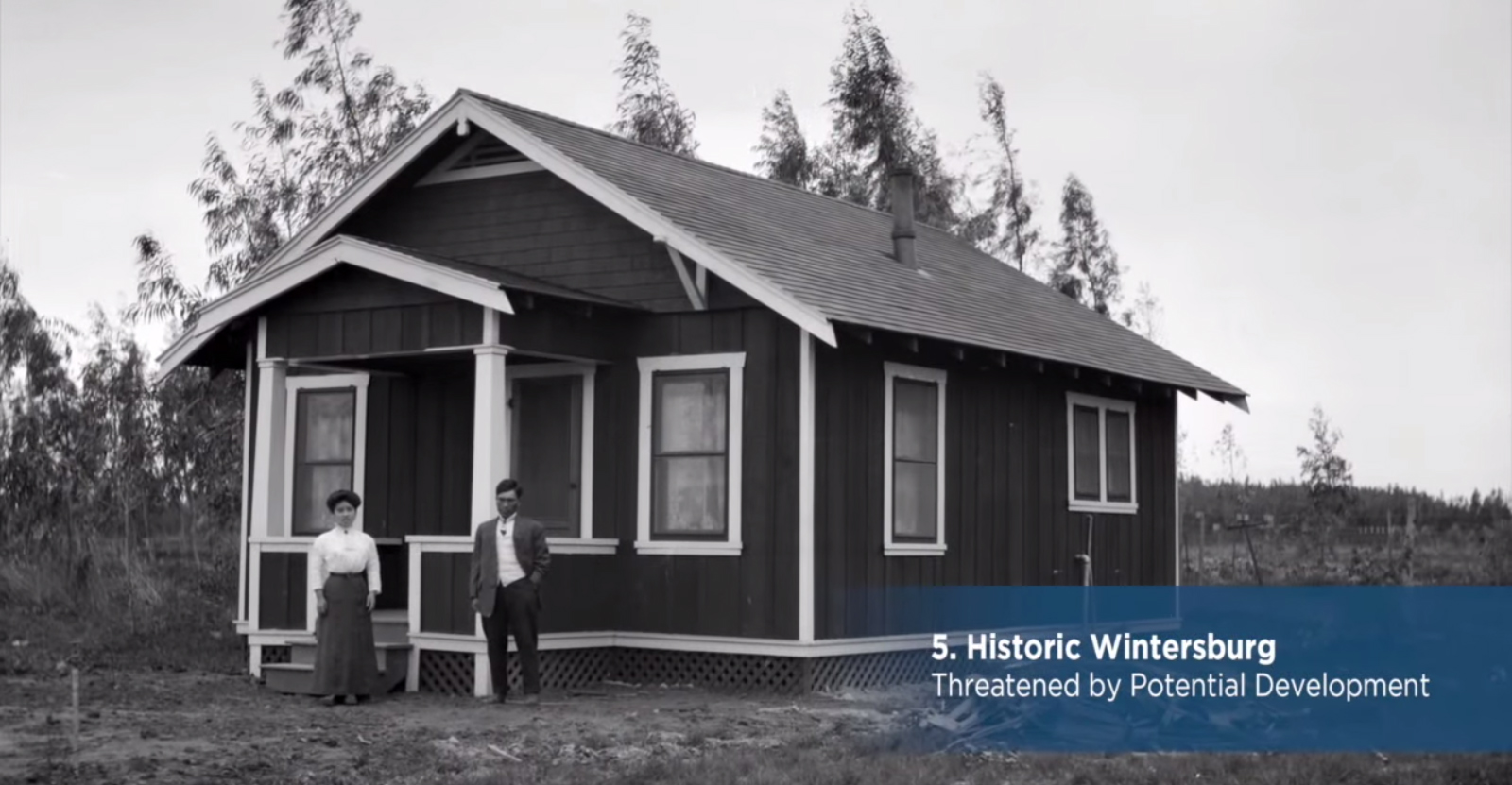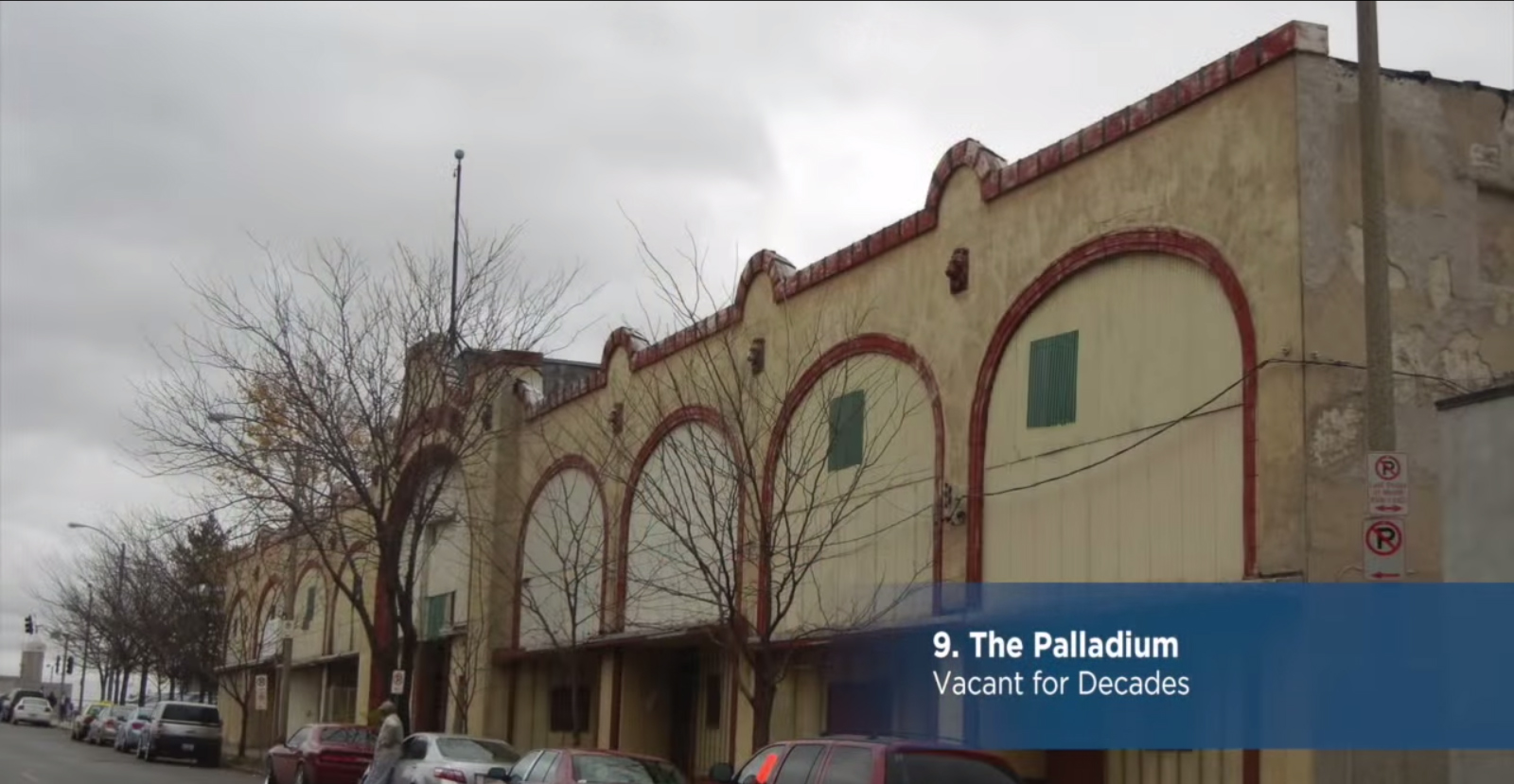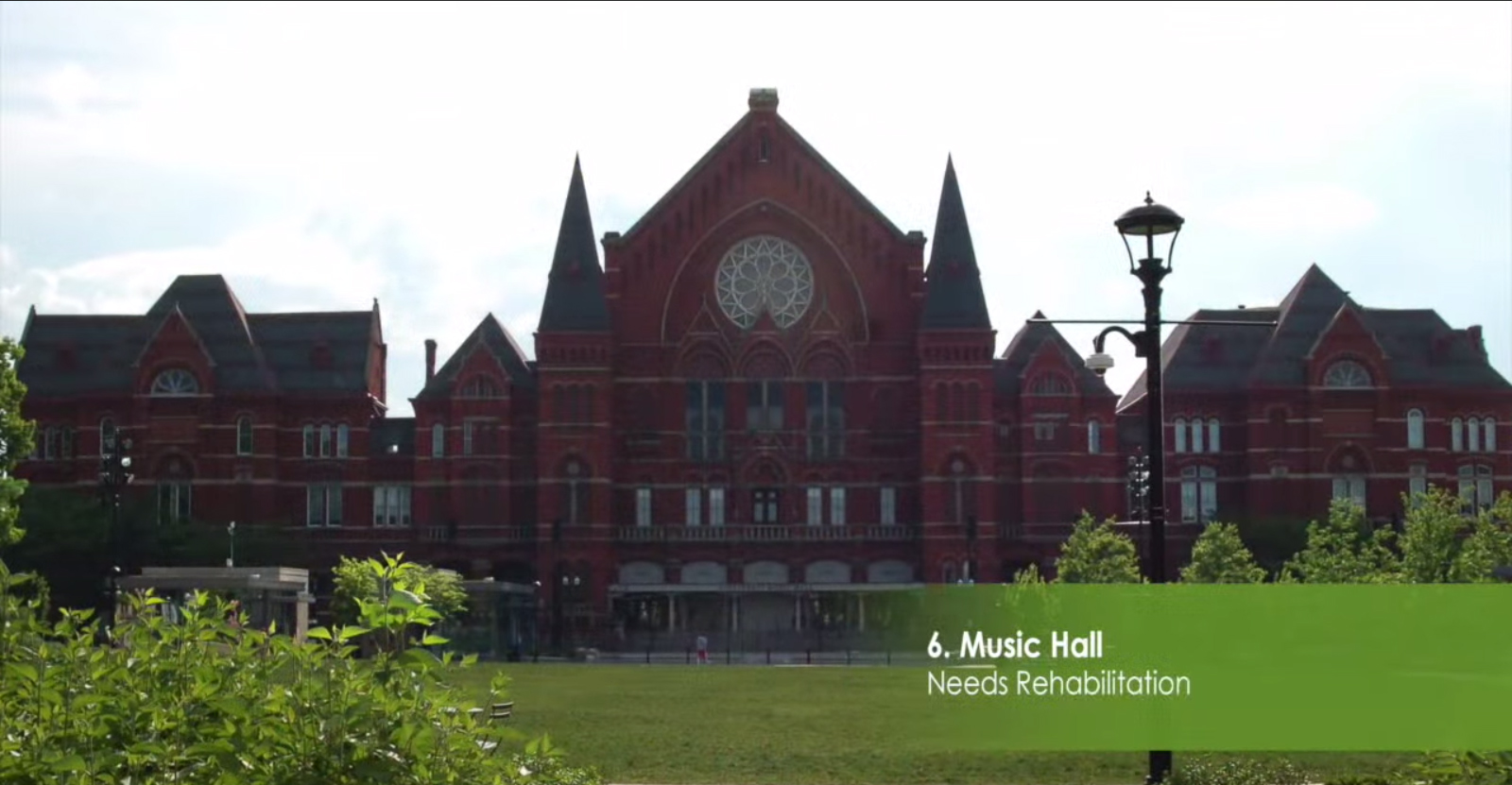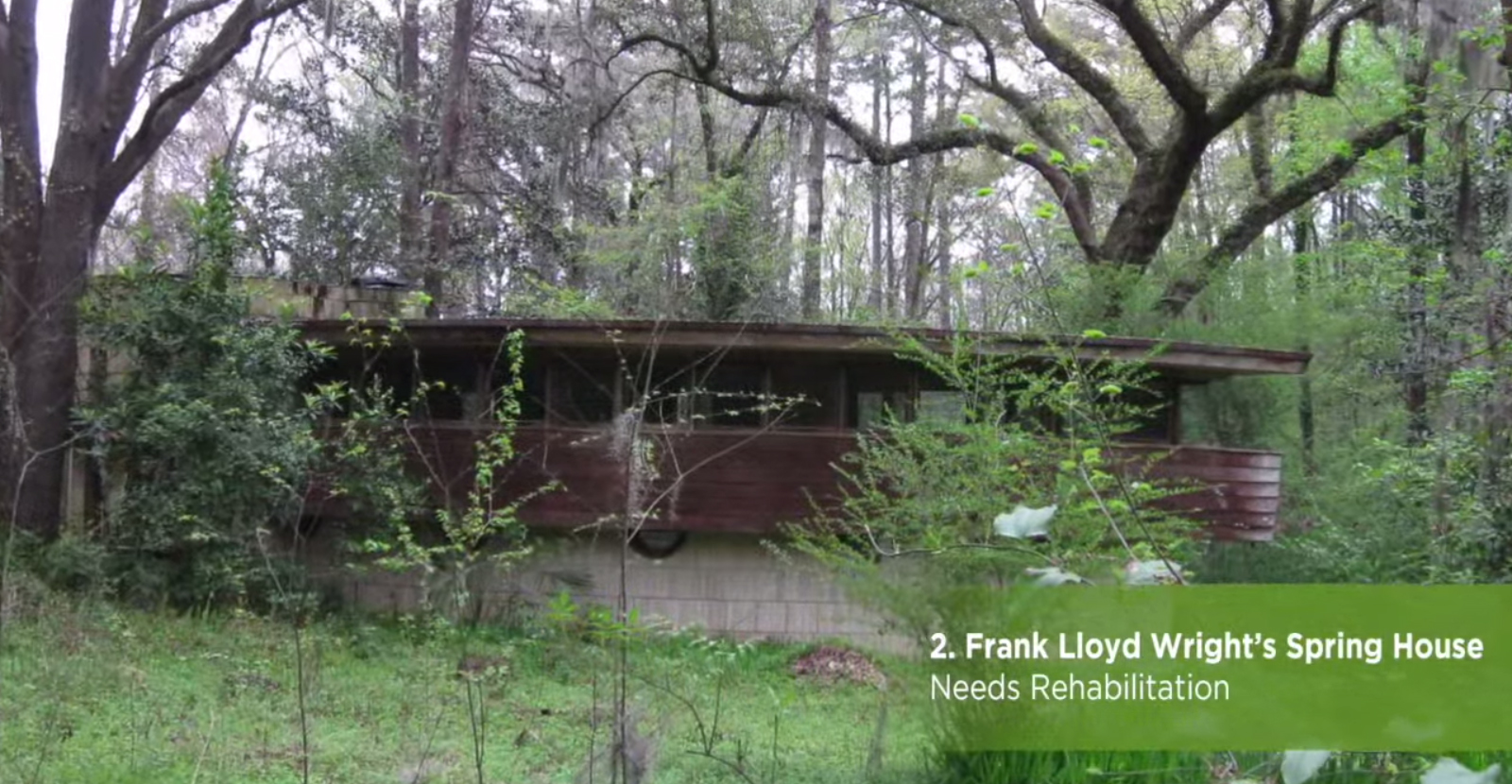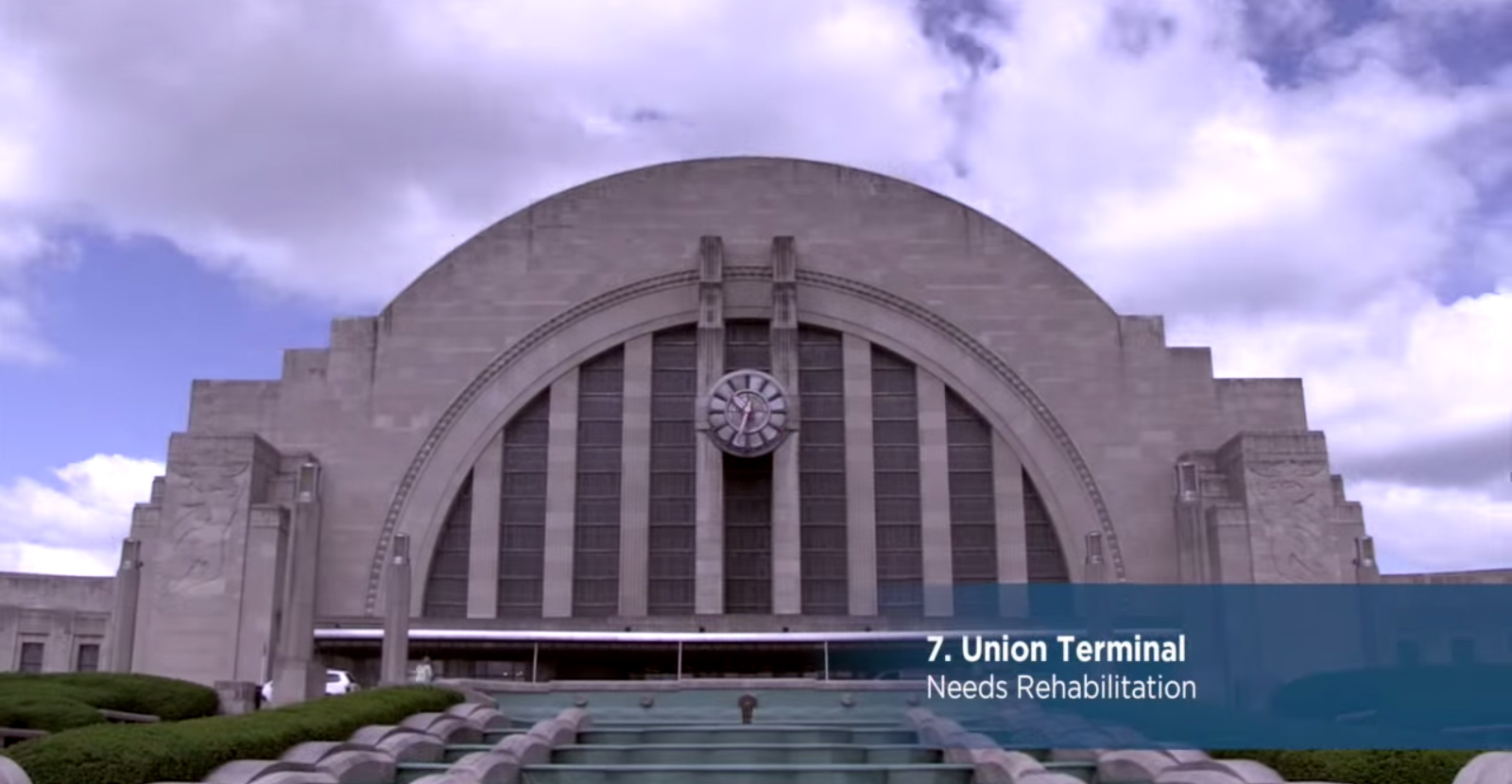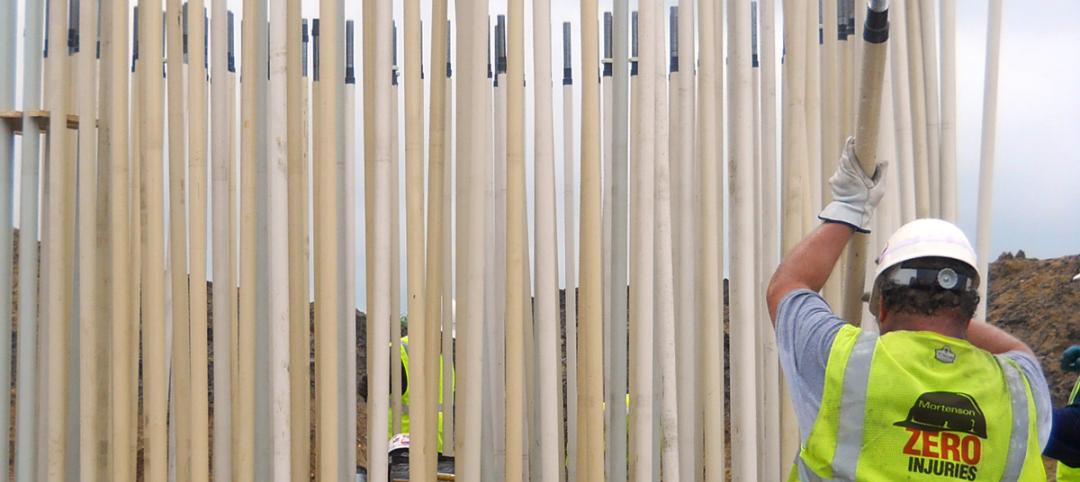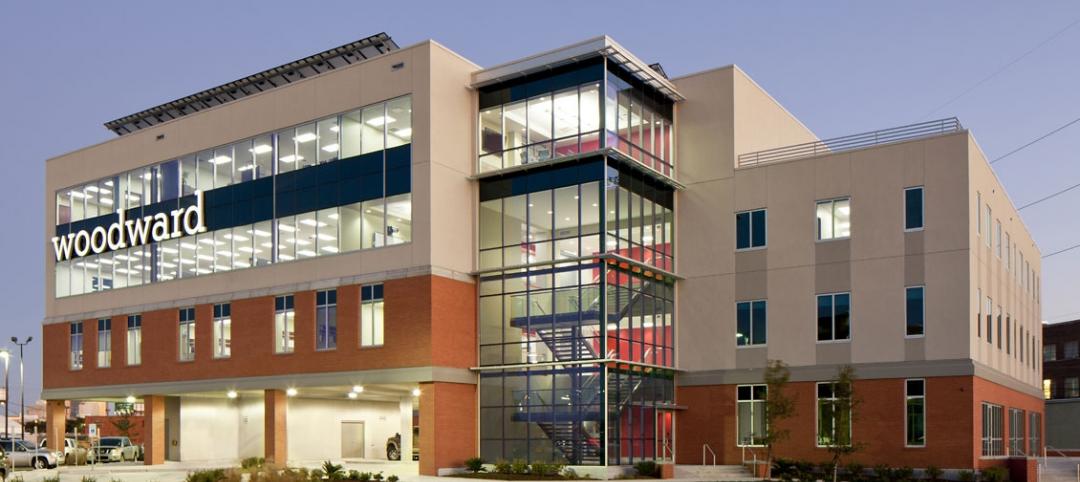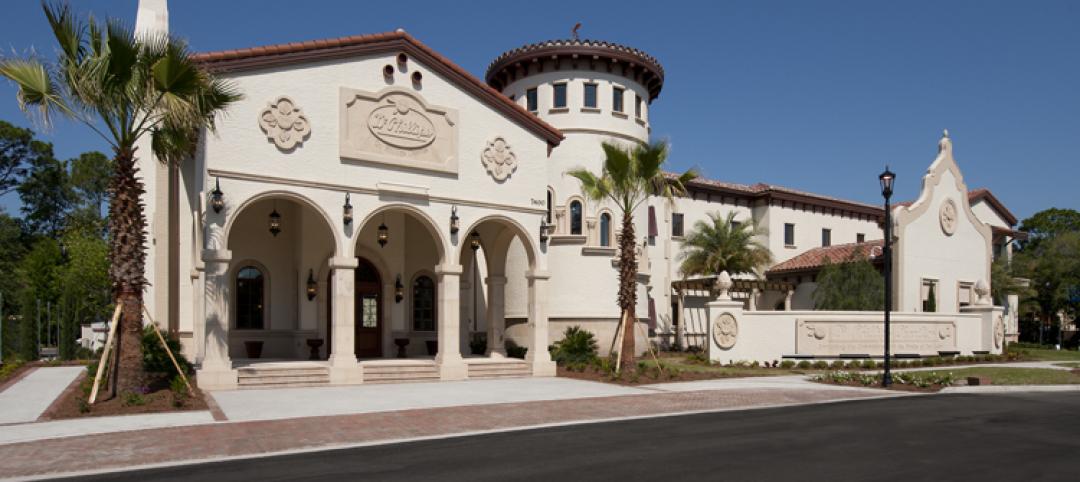See them before you miss them. Or better: take action. For 26 years, the Trust for Historic Preservation has compiled a list of America’s 11 Most Endangered Historic Places as an effort to raise awareness about the threats facing the nation’s greatest treasures of architectural, cultural and natural significance.
This year’s list has a little bit for everyone. From natural landmarks like the Palisades, to grandeur structures like Cincinnati’s Music Hall or simple yet culturally revolutionary architecture like Frank Lloyd Wright’s Spring House, a variety of sites across the United States are threatened by weather damage, natural disaster or pressure for development.
On the brighter side, the National Trust says that thanks to these lists that come out annually, hearts have been touched and communities have been mobilized. Hence, out of the 250 sites listed as endangered, only a handful have been lost.
Here’s a closer look on eight of the sites that made this year’s list in no particular order:
1. Shockoe Bottom, Richmond, Virginia
This site may not look like much, but that’s because the antebellum artifacts are now below the surface. Shockoe Bottom was an important center for the African slave trade between 1830 and 1865, where 350,000 slaves were traded. Among these slaves were Solomon Northup, whose life was chronicled in the Oscars Best Picture winning “12 Years as Slave.” The site is now threatened by plans to build a minor league baseball stadium on it.
The National Trust says: “Shockoe Bottom should be protected as a site of conscience, a place that offers the public a chance to experience, and learn from, this dark chapter in American history. A path forward for Shockoe Bottom should include meaningful public involvement and expert archeological analysis so that the historical remnants of the slave trade now buried there can be seen and properly interpreted.”
2. The Palisades, Englewood Cliffs, New Jersey
Preserving the Palisades is more than preserving a pretty landscape; these cliffs on the Hudson River represent two historically significant stories to the United States. For centuries, the Sanhikan, Hackensack, Raritan and Tappan nations used the cliffs as shelter to protect their people from adverse weather. In the 19th century, the Palisades became the focus of some of the country’s earliest conservation and protection efforts.
A proposal to build an eight story, 143 foot office next to the Palisades would change the scenic view of the Palisades. According to the National Trust, “if construction goes forward, it would represent the first breach of the viewshed in the 100-year history of protecting the Palisades north of the George Washington Bridge.”
3. Battle Mountain Sanitarium, Hot Springs, South Dakota
For over a century Battle Mountain Sanitarium has provided medical care to veterans in the region. It is one of a few properties managed by the U.S. Department of Veterans Affairs (VA) designated as a National Historic Landmark. The facilities are threatened to an uncertain fate as the VA plans to relocate to Rapid City, 60 miles away.
4. Historic Wintersburg, Huntington Beach, California
Underneath the mythical appeal of the Wild West as preserved by Hollywood Western films is a less-known story of California’s diverse settlement since the 19th century. Wintersburg documents three generations of the Japanese-American experience in the United States, and contains six extant pioneer structures and open farmland.
Although the current owners of the property agreed to provide preservationists until mid 2015 to find solutions to save the historic property, demolition of the site remains a possibility.
5. Palladium Building, St. Louis, Missouri
At first glance, this long-neglected and dilapidated building does not look like much. Reality is the Palladium was the largest club of its kind in St. Louis in the 1940s, and pioneers in African American jazz music such as Nat King Cole and Ella Fitzgerald have graced its stage.
6. Music Hall, Cincinnati, Ohio
Built in 1878, the red brick High Victorian Gothic structure features a large auditorium, ornate foyer, offices, carpentry shop, rehearsal rooms, dressing rooms and a ballroom. But despite its grandeur, Music Hall is suffering from deterioration and water damage and is in need of extensive repairs.
7. Frank Lloyd Wright’s Spring House, Tallahassee, Florida
According to the National Trust, the novel hemicycle form “represents a late, and little known, stage in Wright’s long, prolific career.” Constructed in 1954, Spring House is the only built private residence designed by Wright in the state of Florida.
Exposure to hurricanes and winds storms has led to visible damage throughout the interior of the house. Despite the unique design and its association with America’s most famous architect, funds still need to be raised to purchase and restore the house.
8. Union Terminal, Cincinnati, Ohio
The iconic building is one of the country’s last remaining grand-scale Art Deco railroad terminals The massive 180 foot wide and 106 foot tall rotunda is the second largest half dome in the world, and features glass mosaic murals by Winold Reiss depicting the history of Cincinnati and the United States.
The grandeur scale of the structure means restoration costs are hefty, and the station is threatened by deterioration.
To learn more about each site and see the extensive list of endangered landmarks, visit the National Trust’s official page.
Related Stories
| Dec 6, 2011
Mortenson Construction completes Elk Wind Project in Iowa
By the end of 2011, Mortenson will have built 17 wind projects in the state generating a total of 1894 megawatts of renewable power.
| Dec 6, 2011
?ThyssenKrupp acquires Sterling Elevators Services
The acquisition of Sterling Elevator Services Corporation is the third acquisition completed by ThyssenKrupp Elevator AG in the last three months in North America.
| Dec 6, 2011
Vivenzio named vice president of building performance practice at Thornton Tomasetti’s New York Office
Vivenzio, a licensed architect in New York and New Jersey, has more than 28 years of experience in architectural project management, construction administration, building diagnostic services and forensic investigation.
| Dec 6, 2011
New office building features largest solar panel system in New Orleans
Woodward Design+Build celebrates grand opening of new green headquarters in Central City.
| Dec 5, 2011
New York and San Francisco receive World Green Building Council's Government Leadership Awards
USGBC commends two U.S. cities for their innovation in green building leadership.
| Dec 5, 2011
Summit Design+Build begins renovation of Chicago’s Esquire Theatre
The 33,000 square foot building will undergo an extensive structural remodel and core & shell build-out changing the building’s use from a movie theater to a high-end retail center.
| Dec 5, 2011
Fraser Brown MacKenna wins Green Gown Award
Working closely with staff at Queen Mary University of London, MEP Engineers Mott MacDonald, Cost Consultants Burnley Wilson Fish and main contractor Charter Construction, we developed a three-fold solution for the sustainable retrofit of the building.
| Dec 5, 2011
RJM Construction begins building Nova Classical Academy in St. Paul
As the general contractor, RJM is constructing the 94,000-sf building that will consolidate the St. Paul school’s two other locations.
| Dec 5, 2011
Gables Residential brings mixed-use building to Houston's Tanglewood area
The design integrates a detailed brick and masonry facade, acknowledging the soft pastel color palette of the surrounding Mediterranean heritage of Tanglewood.
| Dec 5, 2011
SchenkelShultz Architecture designs Dr. Phillips Charities Headquarters building in Orlando
The building incorporates sustainable architectural features, environmentally friendly building products, energy-efficient systems, and environmentally-sensitive construction practices.



